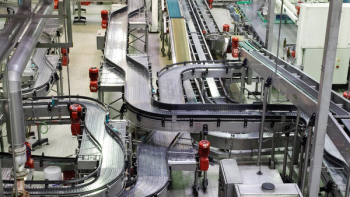
- Pharmaceutical Executive-08-01-2003
The $46 Million Man
When I was a kid, I remember reading magazine articles that set out to determine the worth of the human body-not its personal value, or its ability to produce valuable labor, but just the market value of the chemicals that composed it. The figure I remember hearing was $1.98. Pocket change for the crown of creation.
When I was a kid, I remember reading magazine articles that set out to determine the worth of the human body-not its personal value, or its ability to produce valuable labor, but just the market value of the chemicals that composed it. The figure I remember hearing was $1.98. Pocket change for the crown of creation.
The editors of Wired magazine recently set out to re-create that article. Writer Patrick Di Justo tracked down the the market value of more than 50 bits, pieces, and components of the human body and calculated their market value. He cheated a bit, of course, first by assuming that 100 percent of the substances in question could be recovered from the body, and second, by not considering the practicality or cost of extracting them. Fair enough: Most of us weren't planning to sell out just yet anyhow.
The results? Well, on the level of basic chemical components, we still aren't worth much. Your body contains $7.12 worth of phosphorous, $5.95 worth of potassium, and about four bucks worth of a dozen other substances for a total of $17.18.
But what if we don't break it all the way down? What if we look at the market value of the organs and complex molecules that make up the body? Well, Di Justo calculates that your lungs are worth $58,200 each, that your heart will fetch $57,000, and your kidneys are good for another $91,400. But even more valuable than organs are the body's fluids, tissues, and proteins. Your liver has a market value of $54,100, but it's also the source of a bit more than 22 grams of transferrin, which the body uses to process iron, at $18,900 per gram, or a total of $419,920.20, or more than seven times the value of the organ itself. Your DNA, Di Justo says, will fetch more than $9 million, while your bone marrow, your most valuable possession, is worth $23 million all by itself.
Your total market value: $45,618,575.82. That's a big improvement on a buck ninety-eight. I have to say that it gives me an odd feeling of satisfaction to know that I walk around in a sort of mobile bioproduction facility that's turning out such a splendid array of products, even though I don't foresee cashing in on them. But, truth be told, I think I'll be happier when the value of my body crashes like the stock of a bad dot-com.
It will, of course. And you are the ones who will make it happen. Business focuses so intently on building value that we tend to forget that one of its greatest services in the world is to destroy value by making rare things common and difficult things easy. A watch that kept accurate time was once the prize of a king; now they're ten bucks from a street corner vendor. The computer that used to cost tens of millions and fill a building now operates a talking doll for $20. With luck, the substances that give $46 million to the value of my physical being will eventually-like hydrocortisone ($5.75 for a body's worth) or insulin ($23.52)-be cheap and commonplace. And how will we feel? Like a million bucks? No, like a buck ninety-eight. What could be better?
Patrick Clinton, Editor-in-Chief
Articles in this issue
over 22 years ago
Table of Contentsover 22 years ago
More Than Just a Pretty Faceover 22 years ago
Managing the Innovatorover 22 years ago
Protecting IP Throughout the Product LifecycleNewsletter
Lead with insight with the Pharmaceutical Executive newsletter, featuring strategic analysis, leadership trends, and market intelligence for biopharma decision-makers.




